Here's why you should never browse the Internet again without the use of a Virtual Private Network (VPN) to secure your browsing activity.
Article Contents
- What is a Virtual Private Network (VPN)?
- #1 Protect your online activity from data harvesters
- #2 Securely connect to public WiFi networks
- #3 Access a bigger Netflix library and watch US streaming overseas
- #4 Get lower prices while shopping online
- #5 Block ads, pop-ups, viruses, and malware
- #6 Download safely from torrent websites
- #7 Connect to blocked websites
- VPN Frequently Asked Questions
As you can tell from some of my other articles and videos, I'm a tech focused traveler. In addition to Travel is Life, I also run an online business development agency called Ideas Focused — so I know a thing or two about the Internet and online privacy!
Which is why I'm going to share with you today 7 reasons why you should never surf the web without a VPN.
But first… what's a VPN?
A “Virtual Private Network” or “VPN” is a software you run on your computer and phone that provides a secure gateway to the Internet. The software routes your traffic across various access points so that your Internet Service Provider (ISP) and big data collectors can't track your browsing history and online activity — because right now they can see everything you do online.
A VPN works by encrypting and redirecting your online activity through a worldwide network of computers, essentially randomizing and anonymizing your traffic. Otherwise it's easy for any website or data collector to view your IP address and your device's location and install cookies on your computer that track your every move online.
As you can tell from the banner at the top of my website — it's very easy to identify and track you online. Lucky for you though, I'm one of the good guys and won't do anything malicious with your data. (I don't even store it. I only display it to demonstrate how unprotected your device is.)
In addition to encrypting and protecting your online traffic, a VPN does a whole lot more, which I'll cover below in this article. It's a must-use piece of software for all Internet users, especially travelers, but surprisingly only a small percentage of folks actually use one.
The VPN I personally use and recommend to everyone is NordVPN. I've actually sent so many customers their way that they've made my readers a 70% off discount code, which brings the cost down to just $3.71/month for your first two years. Just enter TRAVELISLIFE at checkout or use any of my links to NordVPN on this page and the discount is automatically applied.
And now, here are 7 reasons why you should always use a VPN…
#1) VPNs protect your online activity from spying eyes

Everyone wants to see your browsing history and online activity, and unfortunately for most of us — we let them!
Companies you're familiar with like Facebook and Google, as well as huge data brokerage companies you've probably never heard of before like Acxiom and Epsilon are all tracking your every move online and harvesting your data. A VPN prevents them from being able to do so.
VPNs work by routing your traffic through a secure network, making it impossible for data harvesters to log your browsing history.
A reputable VPN like NordVPN does not internally log your traffic (ie: keep record of your browsing history), however, not all VPNs are created equal. Some VPNs will keep internal records of your browsing history — which kind of defeats the purpose of using one!
If you don't want Big Tech or your ISP to have a record of your browsing history, why would you want your VPN?! Make sure to only use a VPN that has a strict no log policy that's regularly audited by 3rd party services like the one I recommend.
#2) Securely connect to public WiFi networks without concern.
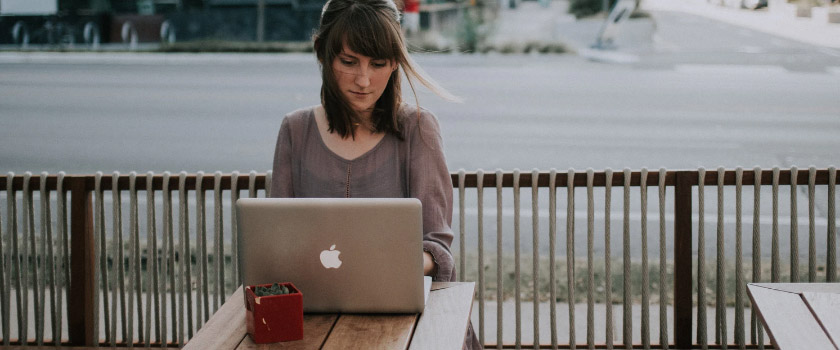
You've probably heard a million times that it's dangerous to connect to public wifi networks because hackers can intercept your traffic and steal your website login credentials and banking info.
Unfortunately that's not just an urban myth. It's true and surprisingly easy, even for entry level hackers. Stealing info from public Wifi networks is like Hacking 101 at Hackers University. It's every hacker's first project.
When using a VPN, your traffic is encrypted and secured over the public network so that it's not visible to hackers. Because let's face it — we're all going to connect to public wifi networks even though we know we shouldn't — so we might as well not make it easy for hackers to steal our info.
NordVPN secures your traffic in between their servers and public Wifi networks so that you can connect without worry. Their VPN works on your laptop and your cell phone — so you're protected on either device.
#3) Access a bigger content library on Netflix, plus watch US streaming services from other countries.
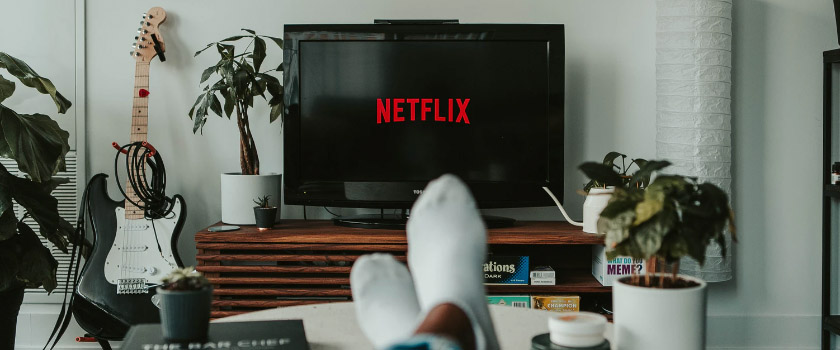
Netflix, Hulu, Disney+, Amazon Prime, Peacock, and other streaming services have geographical restrictions on their content. Some streaming services won't let you access their library at all outside of the US, while others will limit which content is available to you.
On the flipside of the coin, many times other countries have a BETTER selection of Netflix movies and shows than the US! Or at least a different selection for when you run out of things to watch in your own country. For example, I remember when Netflix had Wolf of Wall Street streaming while I was in Costa Rica, but it was not available in the USA until 8 months later.
VPNs allow you to choose which country it appears as if your traffic is coming from. For example, if you're overseas and want to watch US Netflix or Disney+ (which is not yet available overseas), you can just select a US Server from your VPN. Or alternatively if you want to see what movies and shows are available in a Latin American or Asian market, you can just switch to a Thailand or Colombian server on your VPN and have a whole new selection of content.
#4) Get lower prices on airline tickets, Amazon, and other websites that use cookies to artificially create price urgency.
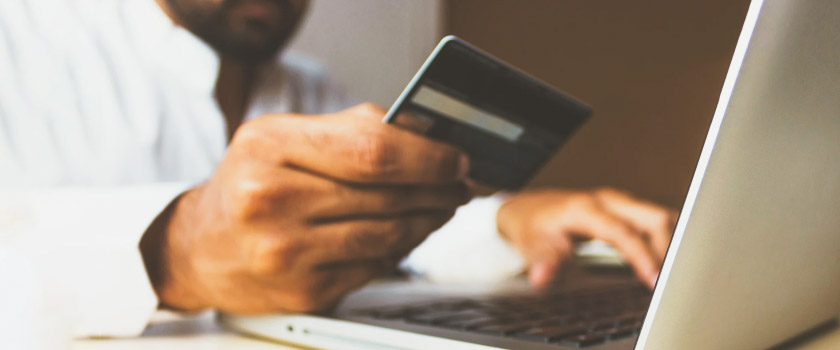
You might not know this but many of the big e-commerce websites use cookies to track your browsing activity including which sites you've visited and the prices you've already seen. That way they don't have to show you the least expensive price — they just have to show you a price cheaper than what you've already viewed.
Or in other cases, the opposite is true. You'll be searching for an airline ticket and if you don't buy right away, the price magically gets a little higher a few hours later. This creates a sense of urgency. “If I don't buy the ticket now, it's going to go up in price again.
This is why you shouldn't let big tech follow you around the web when you're not on their sites. A VPN blocks this type of tracking and helps ensure that you're seeing the best price a website has to offer you, not just the price they think you're willing to pay.
#5) Block ads and malware — VPNs work as a great premium ad blocker and virus protection.

There's no reason to pay for a Premium Ad Blocker or expensive malware software when a VPN can block both of those things right at the source. Plus many VPNs are significantly less expensive than malware and ad blocking softwares even though they do the job of both — and more.
NordVPN has a built-in tool called CyberSec that blocks dangerous websites, prevents botnet attacks (where hackers use part of your computer's resources to do malicious things), and blocks ads and pop-ups while surfing the web.
And it does all this on their servers versus your computer, which speeds up your website access and allows you to get rid of the bloated virus protection that weighs down your computer.
#6) Download from torrent sites without your ISP sending you a letter.

By now you've probably had a friend or family member receive a letter from their Internet Service Provider accusing them of downloading copyrighted movies or music with a warning to cease and desist. Or maybe you've even received one yourself!
How would they possibly know what movies and music you're downloading, you may ask? Because they're spying on your every move online!
A VPN prevents your ISP from monitoring your downloads and browsing history, making what you do online relatively anonymous. Meaning, no more threatening letters from your ISP.
Now, I'm not encouraging you to illegally download copyrighted movies and music. There are many other practical reasons to use torrenting websites, but there's no practical reason to let your ISP know that you're on them because they'll assume the worst and flag your account.
As you've learned though, not all VPNs are created equal, and some don't allow Peer to Peer (P2P) traffic such as torrenting websites. The one that I recommend in this article, NordVPN, does allow P2P traffic.
#7) VPNs allow you to access websites that are blocked in your country or network.
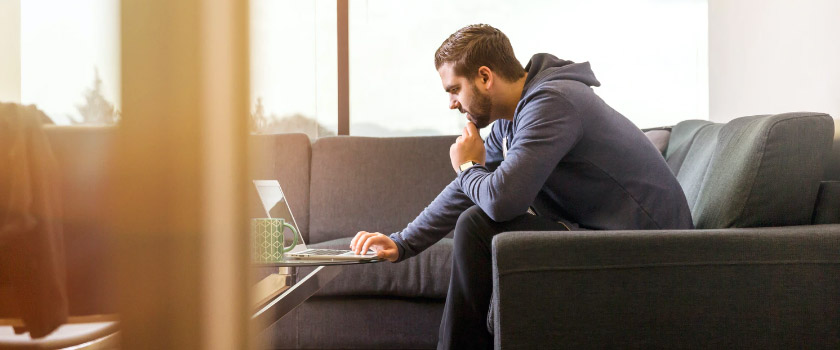
As mentioned above, a VPN routes your traffic and lets you choose which country your IP address is coming from. However there are many other practical uses for this besides just streaming Netflix.
For example, while I'm overseas, I'm unable to do my taxes online without a VPN because the North Carolina Department of Revenue blocks foreign IP addresses from accessing their site. LoopNet (a real estate website) also does not let me access their site without a domestic IP Address, so I have to use my VPN.
And unfortunately, the way things have been going with social media and big tech restricting access to websites, there might come a time very soon when accessing the full Internet from America requires a VPN. It's great to have options either way and not be limited to your the IP Address that your Internet Service Provider gives you.
Lastly, sometimes free Wifi networks block access to seemingly normal websites. They use a website filter that doesn't always get it right, and consequently regular Internet activity gets interrupted. A VPN routes past any filters or blocks on whatever private Internet network you're connecting to.
►►Get 70% off your first 2 years with NordVPN◄◄
💡 VPN Frequently Asked Questions
At this point, I'd imagine you're sold on using a VPN for the rest of your life and never want to connect to the Internet ever again without one! So let me answer a few frequently asked questions for you about VPNs…
► Is using a VPN legal?
VPNs are legal in most countries including USA and Europe, but some countries have banned VPNs altogether (ie: China) or heavily regulate their usage. If you decide to use a VPN in a country where usage is restricted, be sure to download the NordVPN apps and get your subscription before traveling there. You won't have a problem using a VPN if it's already installed before you arrive.
► Can I use a free VPN?
Noooo!!!! Absolutely under no circumstances should you use a free VPN. Remember, when the service is free, you're the product. Free VPNs log your traffic, sell your data, aren't secure, and are terribly slow to use. I actually think you'd be better off NOT using a VPN at all than using a free VPN.
I wish there was a great free option and I'd use it myself if so, but the infrastructure that goes into hosting a VPN is expensive and requires ongoing maintenance and security updates. I'm happy to spend a few dollars a month with NordVPN or another reputable VPN to facilitate this for me.
► Are there any alternatives to a VPN?
Some people use a proxy server to change their IP address and bypass geolocation restrictions (like to watch Netflix overseas), but proxies do not secure your connection and they often have too many people using them and sharing an IP address, so Netflix blocks them. For the same price, it makes more sense to use a VPN instead of a proxy.
► Should I leave my VPN on all the time?
Yes, there's little reason to not run your VPN while connected to the Internet — including at your home or in public places. NordVPN offers unlimited bandwidth so you should keep it running all the time and secure all your Internet activity.
► Do VPNs work on all browsers and devices?
It depends on the VPN, but most of the good ones including NordVPN will work on your laptop, desktop, and phone as well as any browser you choose to use including Chrome, Safari, Firefox, Brave, Edge, Opera, etc. VPNs actually work behind-the-scenes at a connection level (before the data reaches your browser) so there's no browser extension required. NordVPN also works on Amazon Fire, Raspberry Pi, Linux, Chromebooks, Android TVs, and a handful of other operating systems and devices.
► Can you be tracked if you use a VPN?
VPN gives you a new IP address and encrypts your Internet traffic — but it won't protect you from malware that's already on your computer such as keyloggers, spyware, etc. So while a VPN will add an extra layer of protection to your Internet browsing moving forward, it's important to scan your devices for existing malware — or start from a fresh operating system install.
► What's the best VPN service?
The one that I personally use and recommend throughout this article is NordVPN. I've actually sent so many customers their way that they've made my readers a 70% off discount code, which brings the cost down to just $3.71/month for your first two years. Just enter TRAVELISLIFE at checkout or use any of my any of my links to NordVPN on this page and the discount is automatically applied. If you're not thrilled with their service, they offer hassle free 30 day refund.
I'm also a fan of PureVPN and ExpressVPN, however, they are either more expensive than NordVPN or lack a few features that NordVPN has, so I tend to recommend NordVPN instead.
Shoot me an e-mail to [email protected] or comment below if you have any questions about how VPNs work and I'll update the article. If you sign up for NordVPN or one of the others I recommend above, let me know what you think about their service. I think you'll find a much more pleasant browsing experience.

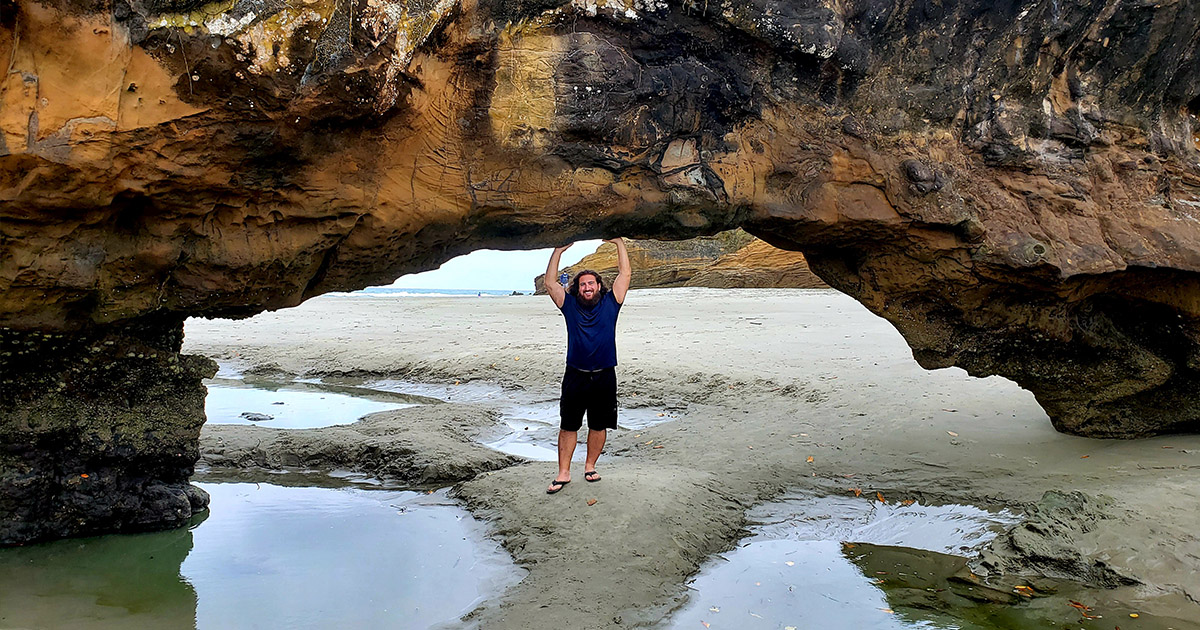
0 Comments